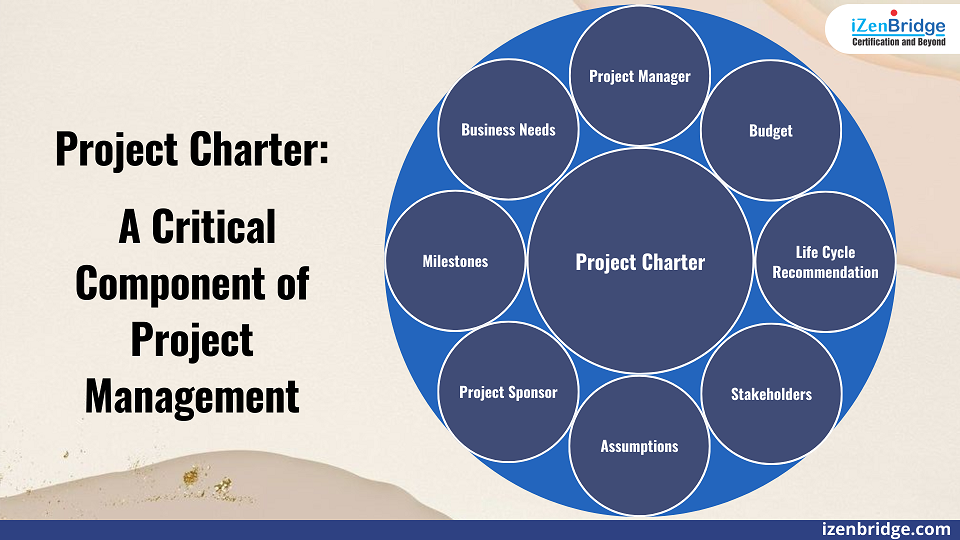

A Project charter is a vital aspect of project management, which authorizes the project for execution and gives a clear view of the project’s goals, objectives, and deliverables. This article aims to provide PMP Test Takers with an in-depth understanding of a project charter, what it contains, and how it is created.
What is a Project Charter?
A project charter is a document that outlines the essential elements of a project. It serves as the foundation for the entire project. The project charter includes the project’s sponsor, project manager, and team members, and it communicates the project’s vision, purpose, objectives, requirements, constraints, description, risks, milestones, budget, and stakeholders.
Contents of a Project Charter
The contents of a project charter can vary depending on the project’s size and complexity, but typically, it contains the following information:
It is important to note that while the project charter is used to initiate project management planning, it usually needs to be updated to reflect changes. Instead, any changes are reflected in the project management plan, which is updated through integrated change control. Project charters are rarely changed, as organizations prefer to scrap the project or create a new one if there is a need to change the charter.
The Process of Creating a Project Charter
Creating a project charter is a crucial step in initiating a project. It can be initiated to fulfil a contract or achieve a strategic objective. In the first case, the source contract or client requirements will play a significant role in understanding the project charter. In the latter case, the business case provides information about why the solution, product, or result is needed and how it benefits the organization.
Role of Sponsor and Project Manager in Creating Project Charter
The initiating group or sponsor plays a critical role in creating the project charter and ensuring that it aligns with the organization’s objectives and strategies. The sponsor is accountable for issuing the project charter and has the final say in the project’s high-level requirements. The project manager can initiate, facilitate, and help put all the information together to create a project charter. However, the project manager cannot be the authority who approves the project. The accountability for issuing the project charter lies with the sponsor or the initiating group.
The Role of a Sponsor in Project Management
PMP Test takers often confuse the role of a sponsor with that of a client. However, it is important to understand that a sponsor is not the same as a client. Instead, a sponsor is someone who is funding the project and has a reason for doing so, such as strategic objectives, external orders, or internal needs of the organization. The sponsor is responsible for investing the organization’s resources to achieve the project’s goals and objectives.
Adaptive Life, Cycle, Project, Charter, and Predictive Lifecycle, Project, Charter
It’s worth noting that the project charter is made irrespective of the development lifecycle used. Sometimes the project charter itself may recommend a particular lifecycle, but often the project life cycle gets selected after the project charter is completed. In cases where a predictive lifecycle is used, the project charter will have more details as compared to when an adaptive lifecycle is used.
In the Adaptive case, Project Charter will be a high-level document that outlines the objective and goals of the project but does not go into the details of deliverables and deadlines.
In the Predictive case, Project Charter will have more stringent recommendations for cost and a clear understanding of the milestones.

Project Manager’s Role After Project Charter
Once the project charter is complete, the project manager starts working on the information provided in the document. The project manager will look at the organizational processes to understand how to proceed. The project manager then works with stakeholders listed in the project charter to identify their needs and expectations and creates a first-level understanding of the project.
The project manager then collects and compiles all the information needed to initiate the project with a Project Kickoff meeting. This meeting usually leads to activities that help identify initial details and conduct the project. Afterwards, the project manager will create or facilitate the planning and execution of the project according to the project lifecycle approach.
PMP Exam Tips Related to Project Charter
In conclusion, a project charter is a crucial component of project management that outlines a project’s purpose, goals, and stakeholders. A clear and concise project charter provides the foundation for successful project execution and is an essential tool for securing the necessary resources and obtaining approval from the project sponsor. Creating a project charter involves the sponsor, project manager, and relevant stakeholders, and it should align with the organization’s objectives and strategies.